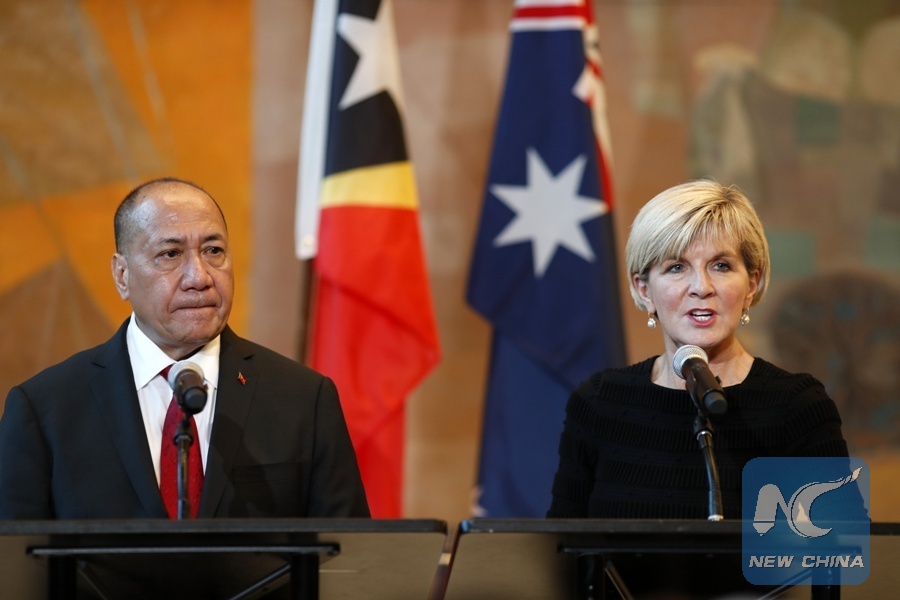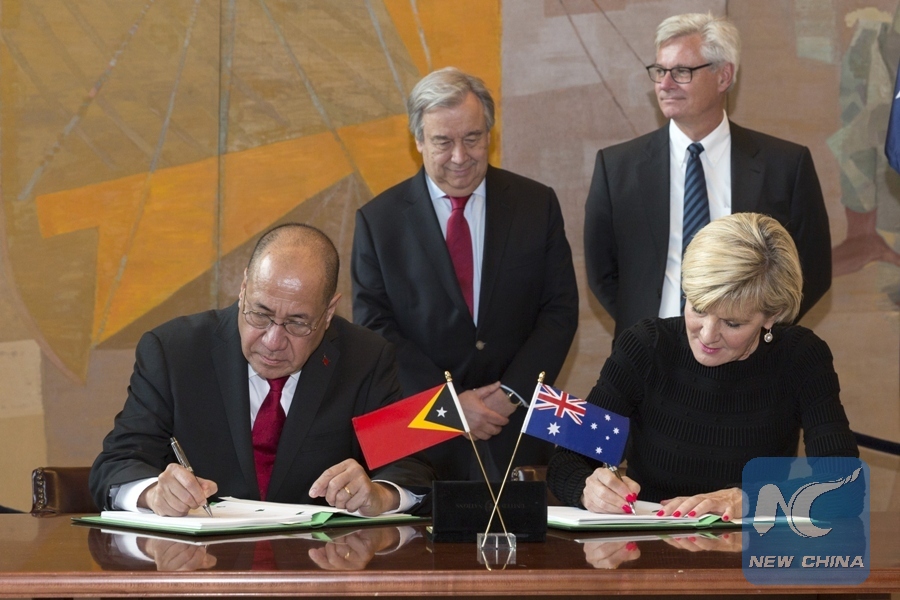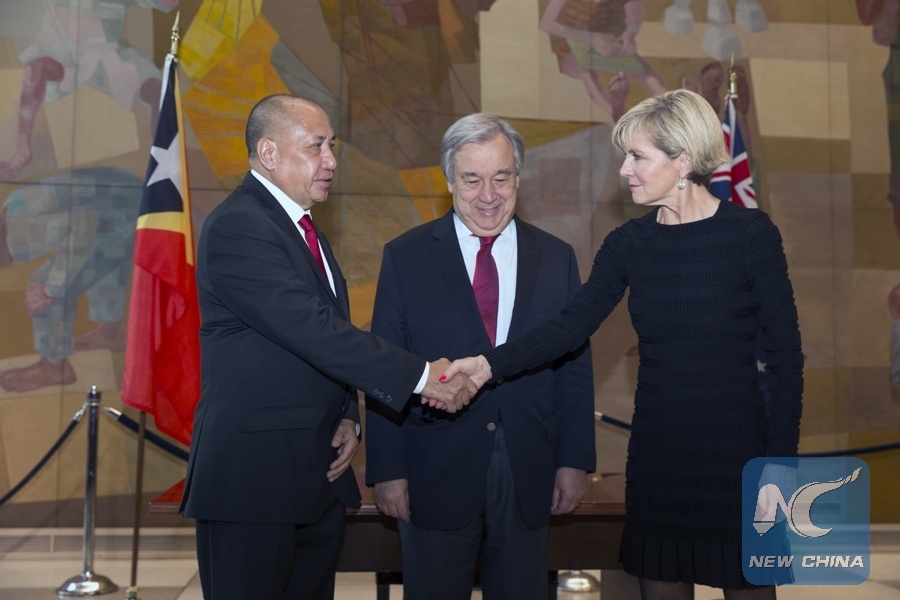
Australian Foreign Minister Julie Bishop (R) and Hermenegildo Augusto Cabral Pereira, Timor-Leste minister in the office of the prime minister for the delimitation of borders, attend a press conference after signing a maritime boundaries treaty at the United Nations headquarters in New York, March 6, 2018. Australia and Timor-Leste on Tuesday signed a maritime boundaries treaty under the auspices of the United Nations. (Xinhua/Li Muzi)
UNITED NATIONS, March 6 (Xinhua) -- Australia and Timor-Leste on Tuesday signed a historic maritime boundary treaty under the auspices of the United Nations, ending a decade-long maritime dispute and recognizing a permanent border between them.
Signed by Australian Foreign Minister Julie Bishop and Timor-Leste Minister in the Office of the Prime Minister for the Delimitation of Borders, Hermenegildo Augusto Cabral Pereira, at the UN headquarters in New York in the presence of UN Secretary-General Antonio Guterres, the pact marks the successful conclusion of the first recourse to conciliation proceedings under the United Nations Convention on the Law of the Sea.

Australian Foreign Minister Julie Bishop (front,R) and Hermenegildo Augusto Cabral Pereira (front,L), Timor-Leste minister in the office of the prime minister for the delimitation of borders, sign a maritime boundaries treaty at the United Nations headquarters in New York, March 6, 2018. Australia and Timor-Leste on Tuesday signed a maritime boundaries treaty under the auspices of the United Nations. (Xinhua/Li Muzi)
"By delimiting the maritime boundary between Australia and Timor-Leste in the Timor Sea and by establishing a special regime for the area comprising the Greater Sunrise gas field, this agreement puts Australia and Timor-Leste in a better position to exercise their respective rights and obligations under the Convention (on the Law of the Sea) in an effective manner," Guterres said. "It should also ensure that both states fully benefit from the sustainable exploitation of natural resources in the Timor Sea."
The treaty, whose text was agreed on in October 2017 in The Hague, will contribute to establishing legal certainty in the world's oceans, an essential condition for stable relations, peace and security, and sustainable development, he said.
It also demonstrates the strength of international law and the effectiveness of resolving disputes through peaceful means, he added.
Guterres said the two governments have furthered the vision of the drafters of the convention to provide a flexible approach to the resolution of disputes. "I trust that your example will inspire other states to consider conciliation as a viable alternative for dispute settlement under the convention," he said.

Australian Foreign Minister Julie Bishop (R) shakes hands with Hermenegildo Augusto Cabral Pereira (L), Timor-Leste minister in the office of the prime minister for the delimitation of borders, after signing a maritime boundaries treaty at the United Nations headquarters in New York, March 6, 2018. Australia and Timor-Leste on Tuesday signed a maritime boundaries treaty under the auspices of the United Nations. (Xinhua/Li Muzi)
Bishop said an international rules-based order is fundamental to collective security and prosperity. "Our treaty reflects the value and importance of those rules and institutions and the benefits for states in abiding by those rules," she said.
"The conciliation shows how international law can enable countries to resolve their disputes peacefully. It is an example for all of how the international rules-based order serves collective interests."
She said the treaty opens a new chapter in relations with Timor-Leste and pledged Australia's continued support for Timor-Leste's economic development.
Pereira, calling the treaty "equatable, forward-looking," said it will institute certainty in international investment and economic development for Timor Leste.

